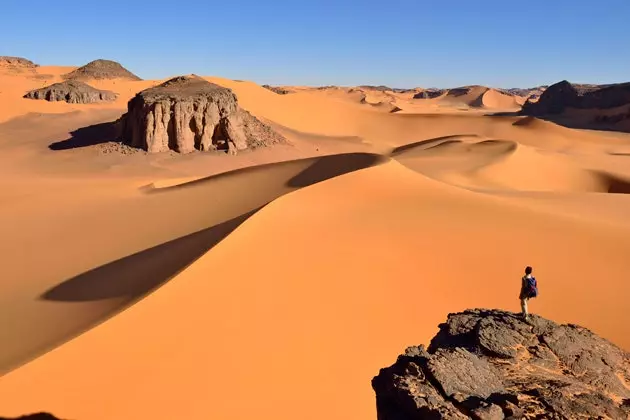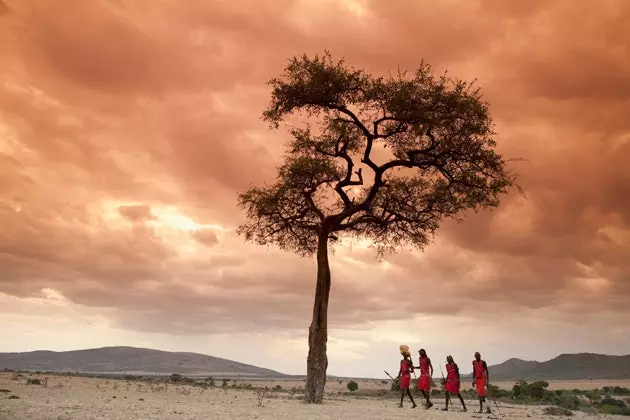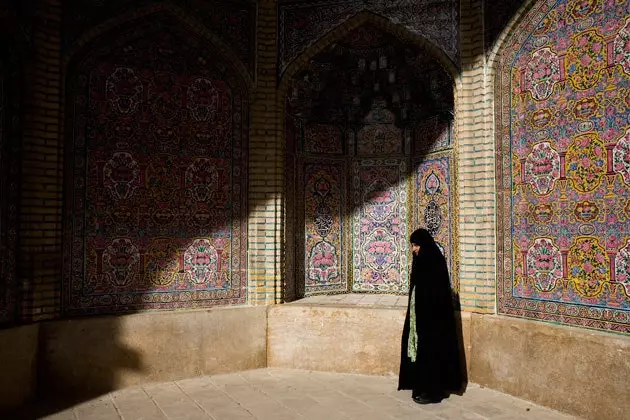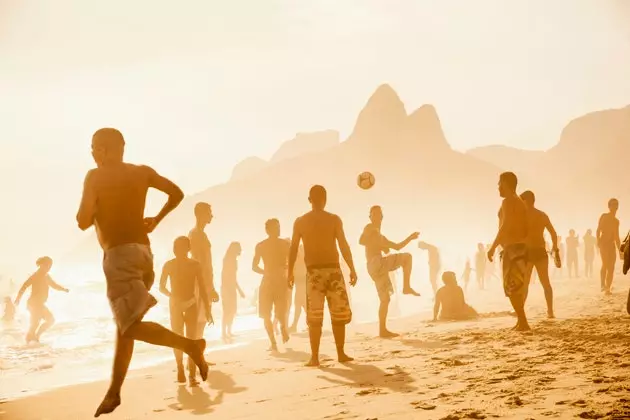
That the teacher is never missing in our suitcase
He was in charge of showing us the crudest side of the world, that part that the West considered of little interest: "Bitter moments for a journalist: having information of global importance and not being able to transmit it." He changed our perspective and, even if you don't realize it, with each of his steps we learned to take ours.
AFRICA
Ebony , one more day alive and the others
"In the Third World you have to have one of two things: or time, or money ”. First lesson we wrote down when stepping with him on the African continent. And it is that, either you go on a fully organized tour, leaving you with your life savings or, if you decide to do it on your own, mixing with the locals, you need to have several lives. And patience, a lot of patience because "In Africa time does not exist" , and we laughed while Kapuscinski had already spent four pages waiting for each bus he took to fill up. Hours could pass but that jumble of iron did not start until all the places were sold. There time loses its value, people arrive when they arrive, slowly and unhurriedly . After all, Why do we run so much in the West?
We learned that reverse racism also exists, consequences of "the colonizing white." In many African countries we are wealth, power and money . Our ancestors were in charge of instilling in them that feeling of inferiority. However, they will welcome us with a smile, a hug and ask us our name, surnames, if you are married and even our Facebook. Because, as Kapuscinski told us, “The most important discovery: people. People from here, from the place. How they fit into that landscape, in that light, in that smell!” And only by mixing with them do we understand that “Africa has its own personality. Sometimes it is a sad personality, sometimes impenetrable, but always unrepeatable. Africa was dynamic, it was aggressive, it was on the prowl ”. How I found him with that cobra that almost cost him his life and almost left us without more books.

Africa in 'Ebony'
ASIA
Travels with Herodotus Y The Shah
"I wrote down inscriptions on labels, names of products displayed in stores, words heard at bus stops (...) I understood that each world entails a mystery and that access to it could only be facilitated by language." How many words from different languages will we have written down in our travel notebooks to repeat them like parrots over and over again. We learned that a thank you in the local language makes us a little closer to its inhabitants, we steal a smile from them.
Cultural differences have also helped us create our own identity: “Human beings not only create culture and live within it. The human being carries it inside, he is culture (...) The Indian is a relaxed being; the tense and vigilant Chinese” And we look for what we like in others to incorporate it into our way of being. We return home with much peace, desire to do good and with the purpose of changing our lifestyle . The idea is good, but the smile only lasts a couple of days. The next morning, on the subway, we will be the same impatient and intolerant as always.
Although in the end we all fight for the same. We find out with The Shah and with an Iranian society that we like. Revolutionary, without fear . They went from being the bad guys in an American movie, to being the society in which we would like to see ourselves reflected. “What allowed the Persians to remain Persian for two thousand five hundred years, what has allowed us to remain ourselves despite so many wars, invasions and occupations, it has not been our material strength but spiritual , our poetry and not the technique, our religion and not the factories ”. And it is precisely that poetry and its people that we fall in love with when one visits Iran.

Iran, the magic of ancient Persia
LATIN AMERICA
The football war and other reports
"In Latin America, the border between football and politics is so thin that it is almost imperceptible." In a continent where everything is lived with passion, sports colors are even a reason for wars , as in the case of the one that briefly confronted Honduras and El Salvador in the late 1960s, baptized by Kapuscinski in The Football War as Such.
In the Boca de Buenos Aires one quickly understands how dangerous red and white tones can be in this paradise of yellow and blue; a River-Boca is always a matter of state in Argentina, and often a smokescreen. Throughout the subcontinent, hundreds of parties are raising supporters in arms and channeling the frustrations caused by deficient or abusive political systems: “In all of Latin America, the stadiums fulfill this double function : in times of peace they serve as a playground, and in times of crisis they become concentration camps.” When one is traveling he never understands those radicalisms, whether they are political, sports or religious. Everything flows in a different way.

Soccer in Latin America, a religion
Kapuscinski gave us that thirst to collect stamps, still without knowing that we would end up becoming travelers . "It didn't matter which or where, because I didn't care about the end, the goal, fate, but the mere act , almost mystical and transcendental, of crossing the border”. Because “At the end of the day, what we could call “travel contagion” exists and is, deep down, an incurable disease”. May the teacher never be missing in our suitcase.
Follow @raponchii
*** You may also be interested in...**
- If you read any of these ten books, prepare to pack
- The best books for traveling
- 30 untranslatable words into Spanish that will help you travel
- Iran, the magic of ancient Persia
- From the sofa to Patagonia in four books
- How to read a book on a luxury train
- hotel books
- The book made its August: famous destinations thanks to literature
- All the articles of Maria Crespo
